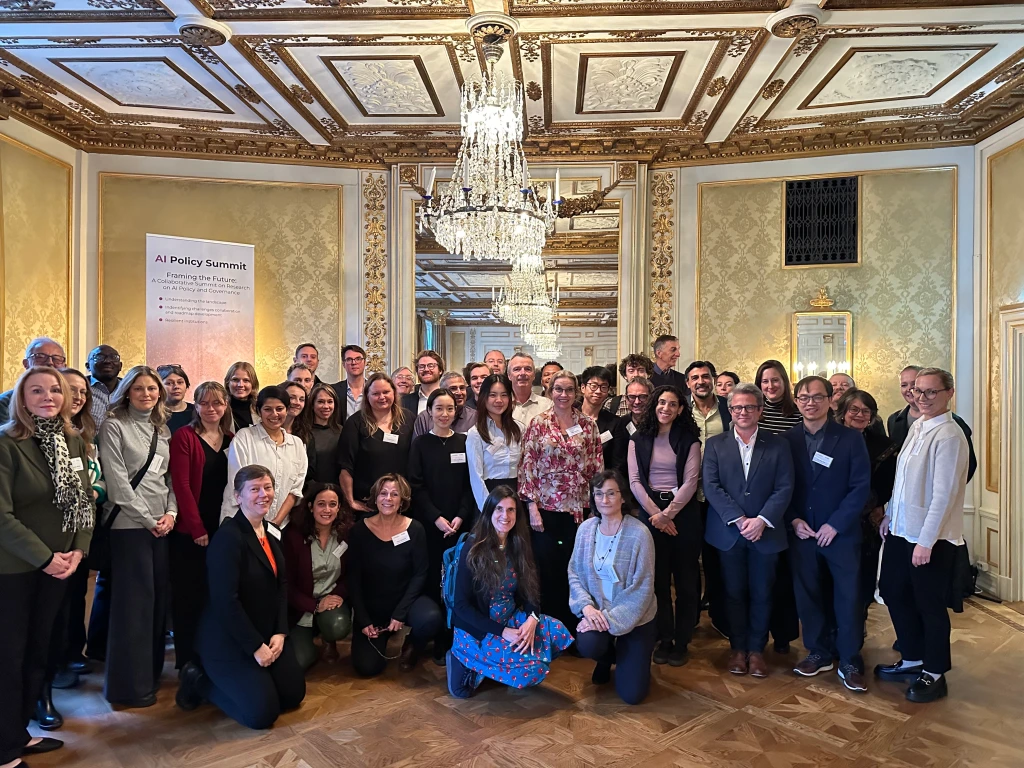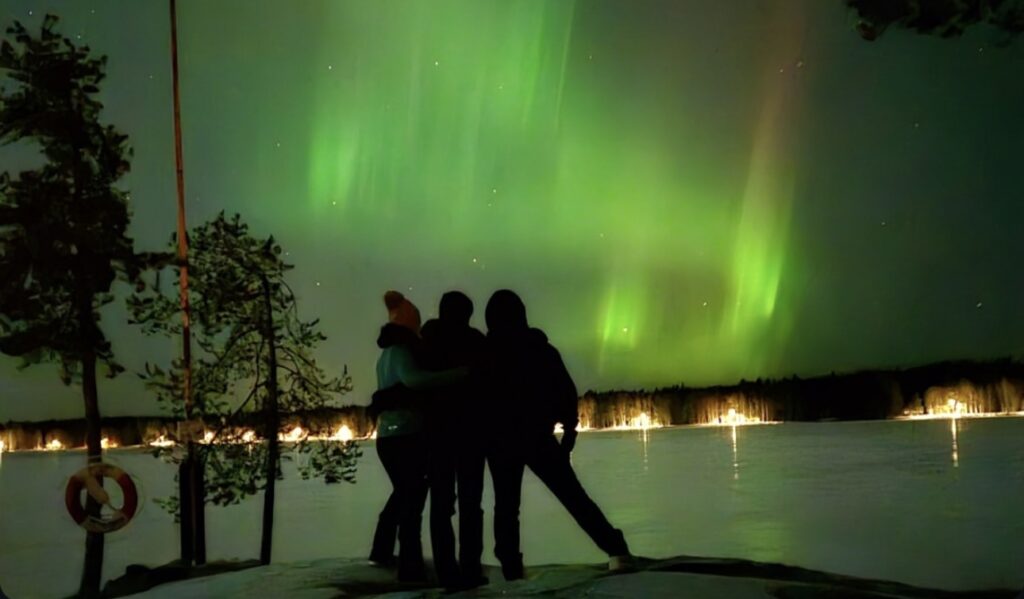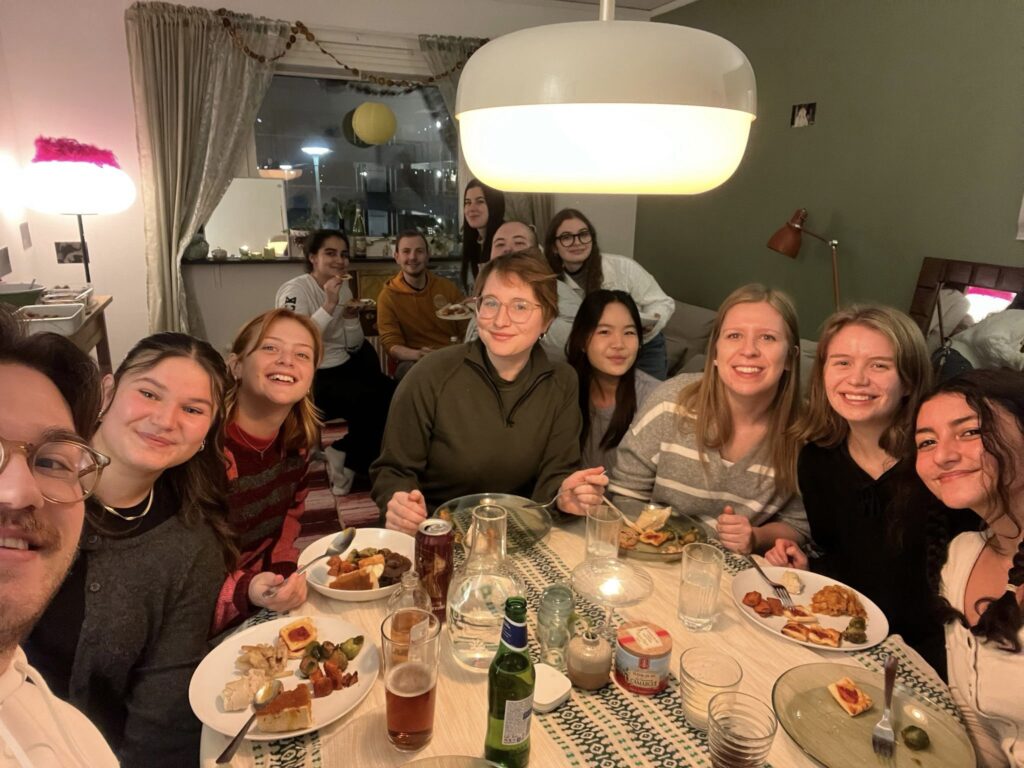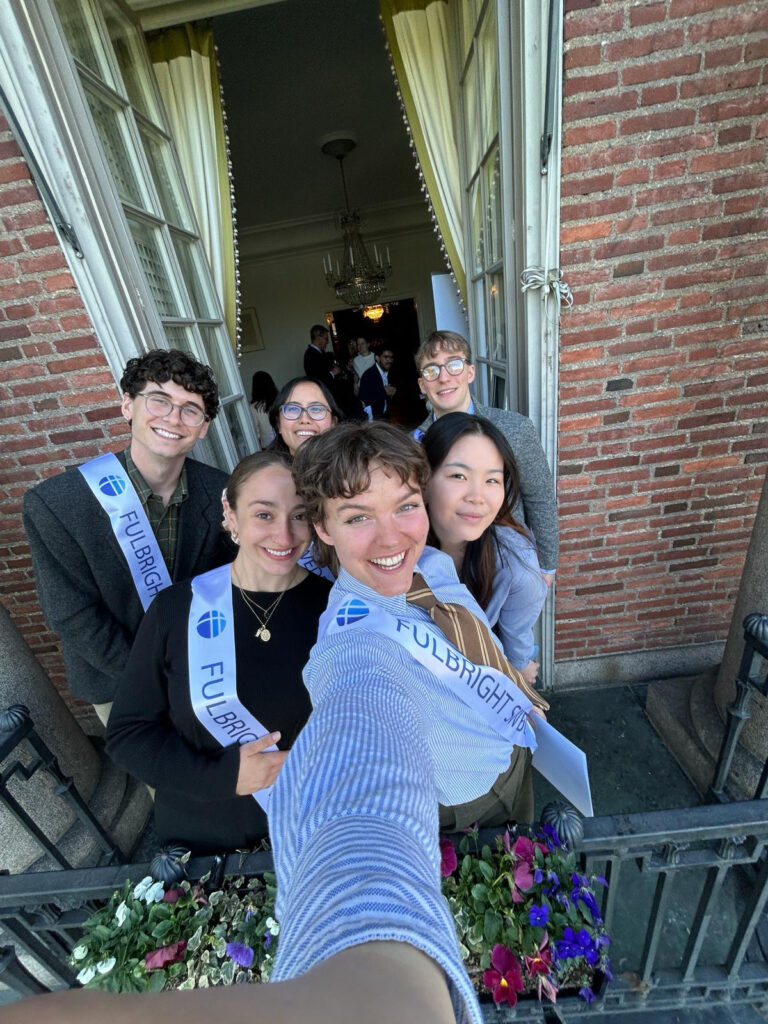As a Fulbright Schuman student researcher to the European Union, Nicole Tong spent the 2024-25 academic year investigating the assessment and engineering of more equitable and trustworthy artificial intelligence systems in Sweden (Umeå University) and the Netherlands (AI, Media & Democracy Lab) alongside Prof. Virginia Dignum. Her research compared the transatlantic landscape of AI regulation and designed policies to implement and test fairness. Nicole graduated from Stanford University with degrees in Symbolic Systems and Computer Science.
At 63.8258° N, Umeå, Sweden lies in the crux of a latitudinal range ideal for witnessing the northern lights.
It was a gusty night in September, the first month of my Fulbright, and at approximately 12:15 am, my phone effused a series of frantic pings: 100% chance of seeing the Northern Lights! Right now! … Go outside! Right now!
I came to the European Union to investigate the design and regulation of artificial intelligence systems, particularly under the lens of fairness. Sweden is home to several innovative technologies and companies – Spotify, Skype, Volvo, Ericsson, and even Minecraft. I sought to understand how the EU AI Act, the world’s first comprehensive AI regulation which came into force shortly before I arrived, would impact the policies, implementation, and effects shared by industry and government stakeholders. This project led me to my new home base at an AI policy lab 249 miles south of the Arctic Circle.

But on this night, I was focused on bearing witness to a natural phenomenon – the aurora borealis. This called for desperate measures; I had downloaded one of the many aurora forecasting apps on the iOS market, avowing to be the most accurate, detailing everything from KP index to cloud coverage. Now it was urging me to go outside. I ran onto my driveway in slippers.
Earth is constantly immersed in solar wind, a flow of magnetized plasma emitted by the Sun in every direction. When the Sun ejects gas bubbles or solar flares, the charged particles are carried by that wind into Earth’s magnetosphere. Finally, the particles collide with our atmosphere’s oxygen and nitrogen to result in ionization and excitation, and emit beautiful ribbons of color.
The northern lights have been studied as early as the 17th century by Galileo, and since then, technological developments have endeavored to estimate when and where they will appear. Systems measuring solar wind and the interplanetary magnetic field, many now integrated with AI and computer vision, claim to foresee with the highest of accuracies.
But if this phenomenon is so scientifically predictable, and the technology so potent, then why was I standing outside in my pajamas staring into pitch black darkness?
I craned my neck into oblivion, blinking furiously and willing a waltz of greens and pinks to appear, to no avail. In Swedish, inget. In English, nothing.
As it turns out, several factors contribute to the fickleness of the aurora, none of which can be controlled by humanity.
Over the next few months, I gradually forgot about this solitary mission to see the northern lights. I focused less on the outcome and more on the journey: fostering human connections and sharing traditions. My lab and I hosted fikas, social coffee breaks accompanied with cardamom buns. I discussed AI and art with an artist who created an exhibit of synthetic birdsong by training a pair of neural networks to mimic various species. At Lake Nydalasjön, I discovered that cross-country skiing on completely flat ground was more difficult than I anticipated. I lounged in a communal smoke sauna before dunking myself in a natural ice bath for 27 seconds. Swedish friends taught me about the indigenous Sámi people with a rich culture of semi-nomadic reindeer herding.

At the Centre for Transdisciplinary AI, I presented my findings on biased voice assistants and generative AI in dark patterns. I played ice hockey for the first time with a local community women’s league. In October, I wrestled with my bike lock, which had frozen overnight. In December, I wore snow pants to get to work. I attended the EU-US Young Leaders Seminar in Brussels, where we considered risks and opportunities in AI, and the significance of transatlantic collaboration. In Stockholm, I helped host the AI Policy Summit, bringing together research labs and nonprofits from Sweden, Italy, the United States, Senegal, Singapore, and others to create a global network. I celebrated my birthday with fellow Fulbrighters in Uppsala and a classic Swedish princess cake – vanilla buttercream, raspberry jam, and green marzipan galore. From distance skating on a 9 km ice trail to sampling every variation of cured fish and mustard-dill sauce on a Christmas smörgåsbord, the list of new experiences is endless.

In the end, I did end up seeing the northern lights, unexpectedly. On the way back from a road trip to cross into the Arctic Circle, four friends and I suddenly spotted a soft glow above us. We pulled over and in subzero temperature, piled outside. Even in its meekest form, the aurora borealis is shapely and billowing. Streaks of muted green, made saturated through the lens of a camera, pliéd along an indigo stage. I was convinced this was some sort of pas de deux between the Sun and Earth. There we were, five girls from Austria, Italy, Brazil, and the US, staring up at the sky, witnessing the otherworldly.
Some events simply cannot be predicted – and that makes them all the more magical.
Every Fulbrighters’ journey is different, and mine was about people. It was combating the 2 pm sunsets in late November by hosting Thanksgiving dinner for European students, carved turkey and pumpkin pie aplenty. It was trading idioms like “spill the beans” in English and “helaas pindakaas” (unfortunately, peanut butter) in Dutch. It was realizing that artificial intelligence may be powerful, but social connection is what makes the human experience invaluable.

Whether I could have predicted them or not, this year’s experiences have upended preconceptions and exchanged them with lifelong memories. I am so grateful to the Fulbright Commission for this wealth of friendships, academic collaborations, and lessons learned.
My hometown in the Midwest may not boast a latitude high enough to admire the northern lights, but when I close my eyes, a celestial ballet comes into perfect focus.

